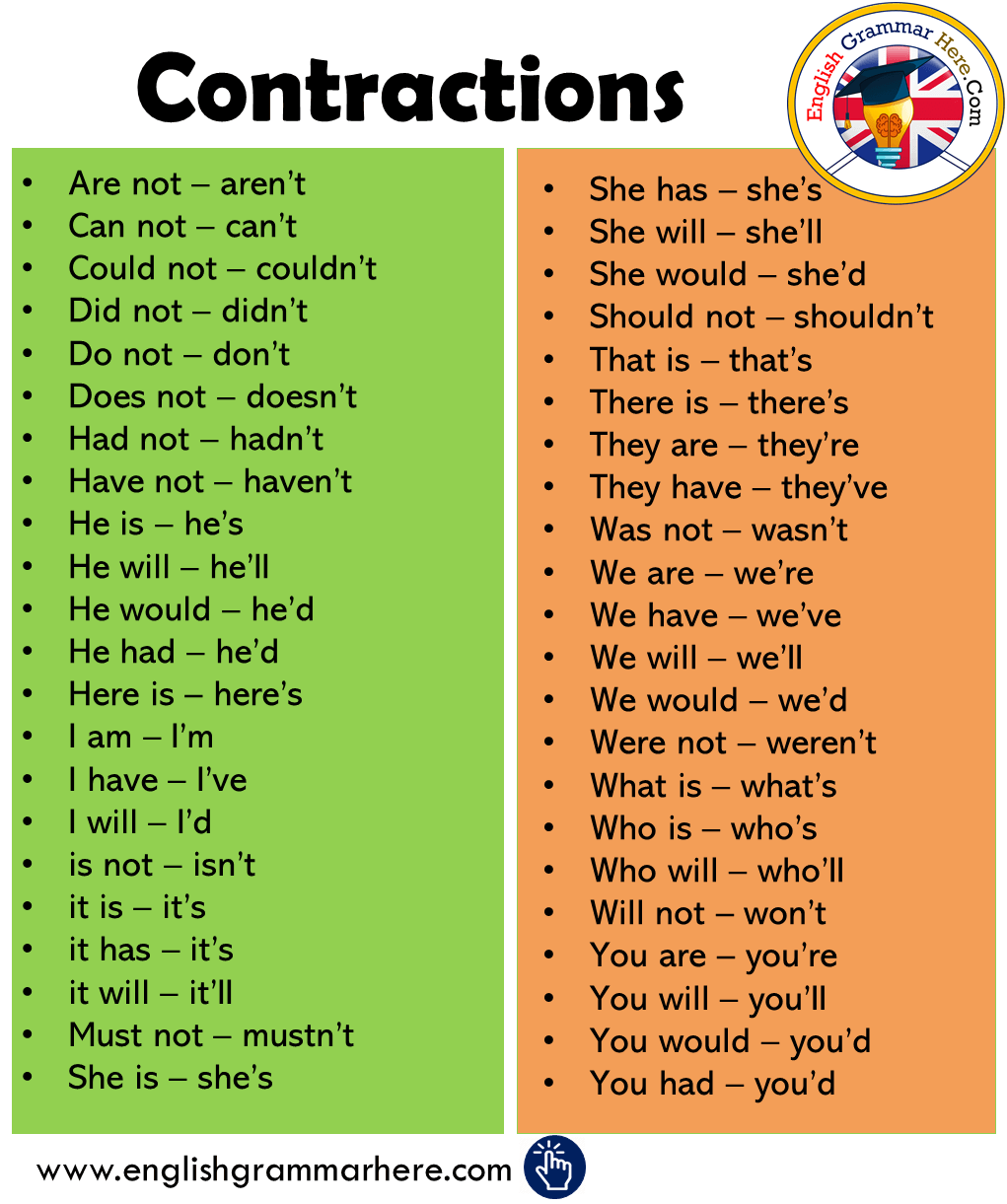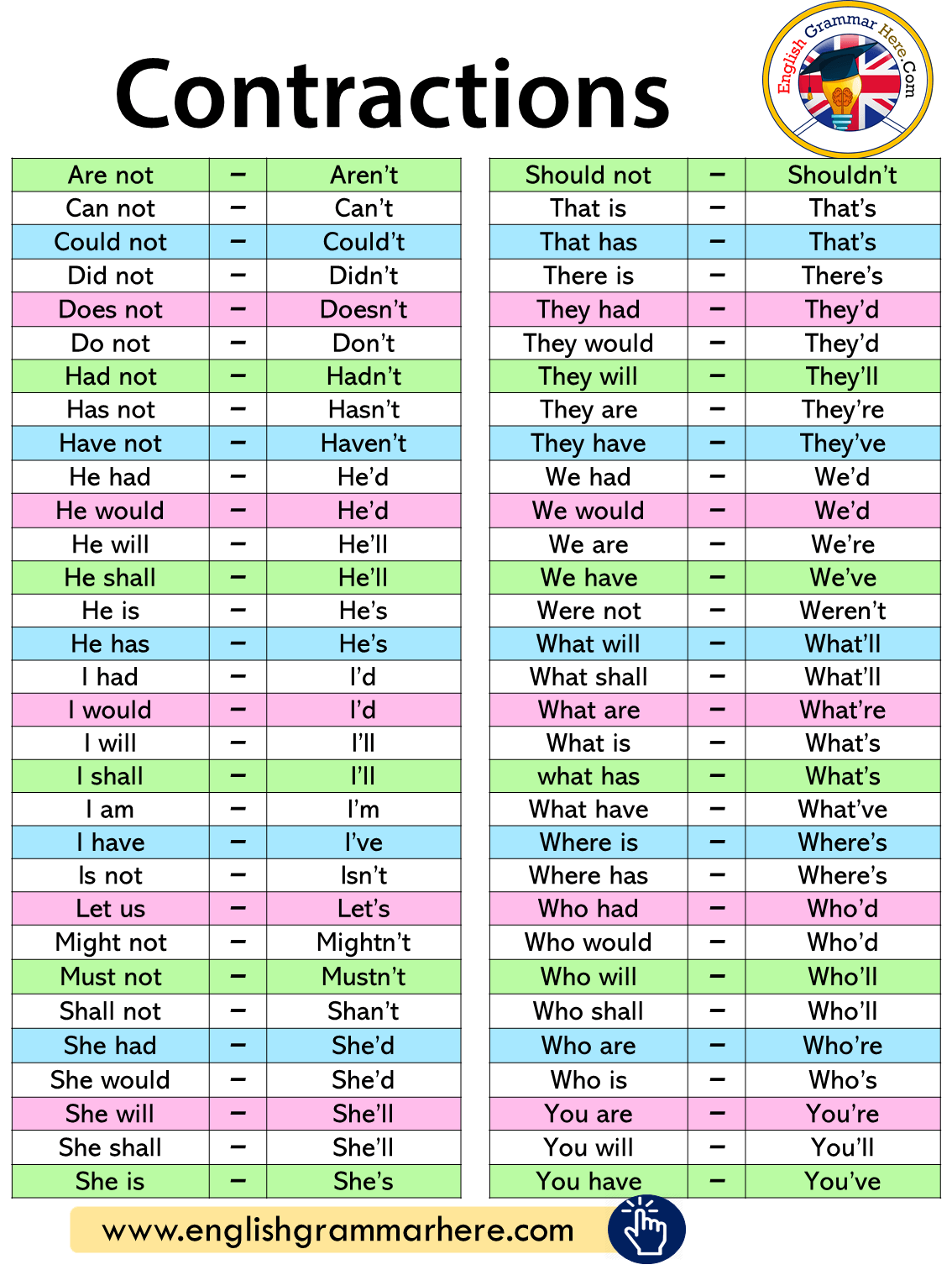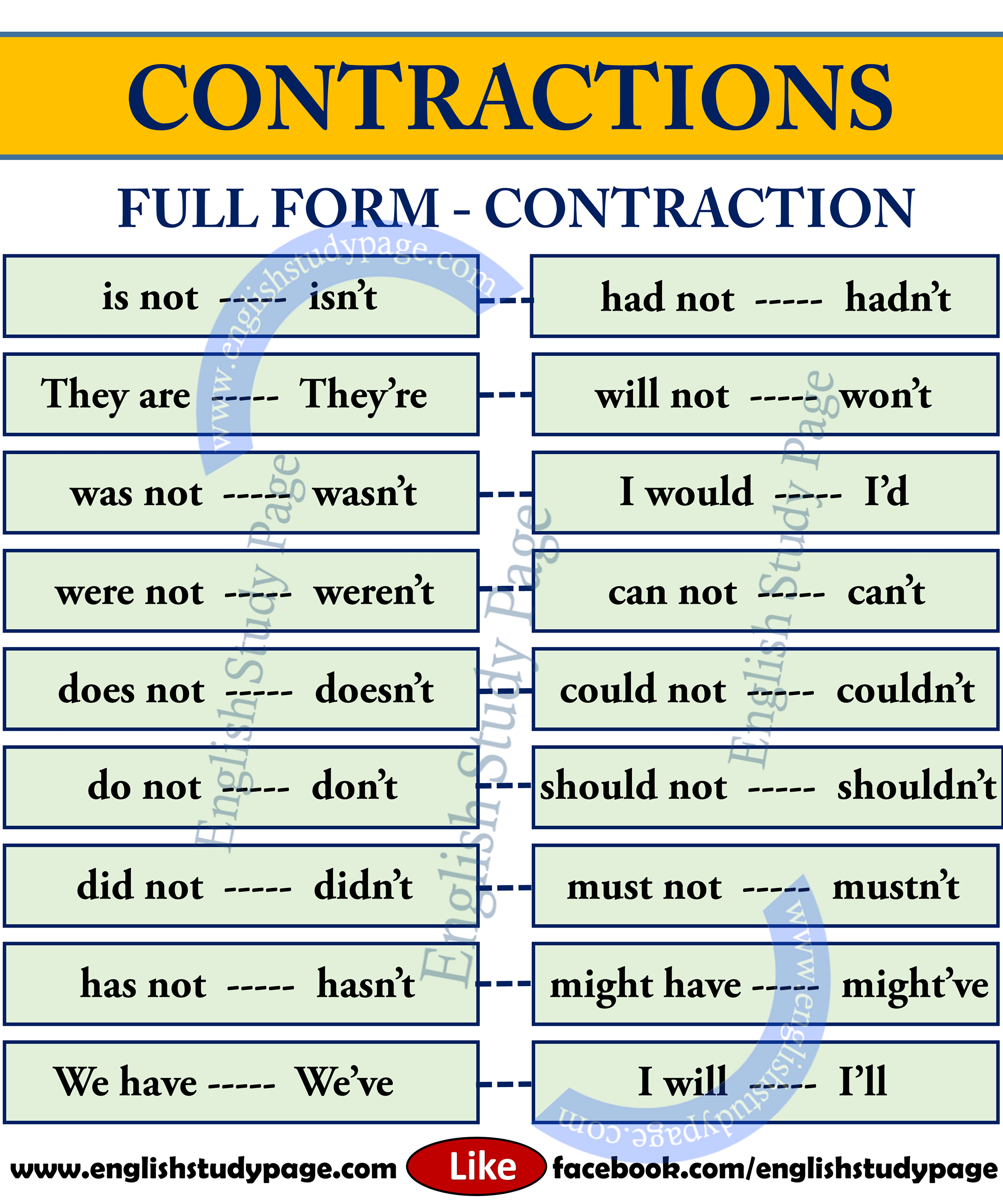I Would Contraction Form
I Would Contraction Form - Learn how to use contractions (i’m, we’re) in everyday speech and informal writing. The contraction 'd can mean would or had. Use the verb would to make contractions. So in your sentence i'd can't stand for i would, because would always has the basic verb form (go, see, have etc.) after it. Would is followed by the bare infinitive. To tell the difference we need to look at what follows 'd: Find out the most common contractions with i, you, he, she,. Change two words in this sentence into a contraction.
The contraction 'd can mean would or had. Would is followed by the bare infinitive. Use the verb would to make contractions. Change two words in this sentence into a contraction. So in your sentence i'd can't stand for i would, because would always has the basic verb form (go, see, have etc.) after it. Learn how to use contractions (i’m, we’re) in everyday speech and informal writing. To tell the difference we need to look at what follows 'd: Find out the most common contractions with i, you, he, she,.
Would is followed by the bare infinitive. Learn how to use contractions (i’m, we’re) in everyday speech and informal writing. Change two words in this sentence into a contraction. Use the verb would to make contractions. Find out the most common contractions with i, you, he, she,. So in your sentence i'd can't stand for i would, because would always has the basic verb form (go, see, have etc.) after it. To tell the difference we need to look at what follows 'd: The contraction 'd can mean would or had.
What is a Contraction in English Grammar? Promova Blog
Find out the most common contractions with i, you, he, she,. Would is followed by the bare infinitive. To tell the difference we need to look at what follows 'd: So in your sentence i'd can't stand for i would, because would always has the basic verb form (go, see, have etc.) after it. Change two words in this sentence.
Most Important Contractions List English Study Here
The contraction 'd can mean would or had. Learn how to use contractions (i’m, we’re) in everyday speech and informal writing. Would is followed by the bare infinitive. Use the verb would to make contractions. So in your sentence i'd can't stand for i would, because would always has the basic verb form (go, see, have etc.) after it.
Contractions List in English English Grammar Here
Would is followed by the bare infinitive. So in your sentence i'd can't stand for i would, because would always has the basic verb form (go, see, have etc.) after it. To tell the difference we need to look at what follows 'd: The contraction 'd can mean would or had. Find out the most common contractions with i, you,.
Words With Apostrophes Contractions
Learn how to use contractions (i’m, we’re) in everyday speech and informal writing. To tell the difference we need to look at what follows 'd: Use the verb would to make contractions. Would is followed by the bare infinitive. Find out the most common contractions with i, you, he, she,.
Detailed List of Contractions in English
So in your sentence i'd can't stand for i would, because would always has the basic verb form (go, see, have etc.) after it. Use the verb would to make contractions. To tell the difference we need to look at what follows 'd: Change two words in this sentence into a contraction. Would is followed by the bare infinitive.
50+ Useful Informal Contractions with Examples in English ESLBUZZ
The contraction 'd can mean would or had. So in your sentence i'd can't stand for i would, because would always has the basic verb form (go, see, have etc.) after it. Learn how to use contractions (i’m, we’re) in everyday speech and informal writing. Use the verb would to make contractions. Would is followed by the bare infinitive.
Abbreviations / Contractions Archives English Study Here
To tell the difference we need to look at what follows 'd: The contraction 'd can mean would or had. Would is followed by the bare infinitive. Use the verb would to make contractions. Learn how to use contractions (i’m, we’re) in everyday speech and informal writing.
Detailed Contractions List in English English Grammar Here
Use the verb would to make contractions. To tell the difference we need to look at what follows 'd: The contraction 'd can mean would or had. Change two words in this sentence into a contraction. Would is followed by the bare infinitive.
List of Contractions in English English Study Page
So in your sentence i'd can't stand for i would, because would always has the basic verb form (go, see, have etc.) after it. Change two words in this sentence into a contraction. To tell the difference we need to look at what follows 'd: The contraction 'd can mean would or had. Use the verb would to make contractions.
List of Contraction Words in English 1 Learn english vocabulary
Find out the most common contractions with i, you, he, she,. The contraction 'd can mean would or had. To tell the difference we need to look at what follows 'd: Would is followed by the bare infinitive. Change two words in this sentence into a contraction.
So In Your Sentence I'd Can't Stand For I Would, Because Would Always Has The Basic Verb Form (Go, See, Have Etc.) After It.
Find out the most common contractions with i, you, he, she,. Use the verb would to make contractions. Learn how to use contractions (i’m, we’re) in everyday speech and informal writing. To tell the difference we need to look at what follows 'd:
Would Is Followed By The Bare Infinitive.
Change two words in this sentence into a contraction. The contraction 'd can mean would or had.



:max_bytes(150000):strip_icc()/contractions-commonly-used-informal-english-1692651-v1-8415dc9952f04e08b9d5259e167e0051.png)





